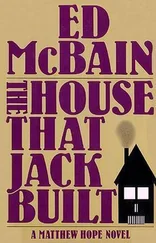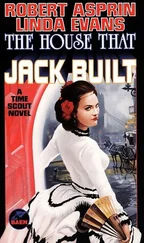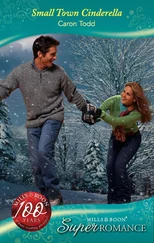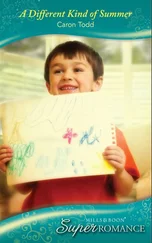He slipped the diskette back into the sandwich bag, and started down the cellar stairs.
LIZ BUMPED HER HEAD on the sloping ceiling over the bed when she sat up. It made her think of her grandfather, solemnly checking every door frame, table and chair she’d bumped into as a child and assuring her it was undamaged. Even if her eyes were full of tears from the collision, she couldn’t help laughing at his concern for those sharp edges. Couldn’t help being just a little bit mad, either.
At night, when she’d made a quick trip down the hall to the bathroom, the bare floor had been icy cold. Now there was a warm path where pale sunlight streamed in. Liz followed it to the window, then stood back from the draft of cool air seeping through the glass.
The yard was huge, reaching to the poplar woods at the back, and to the garden and hip roof barn at one side. Her grandfather’s small orchard, hardy crab apple, plum and cherry trees, grew at one end of the garden, and her grandmother’s raspberry patch at the other. Her arms stung just looking at it. She and Susannah used to wade right in to find the ripest berries. They didn’t notice all the long red scratches on their skin until they were done. Tiny green worms wriggling inside the berries didn’t bother them, either.
Maybe in a day or two the Twilight Zone feeling would wear off, and she could look outside without seeing twenty different scenes at once, her life passing before her eyes. In little pantomimes all over the yard she saw herself playing with her cousins and her brother. Had they spent any time at their own houses, or were they always here, rolling in this grass, climbing these trees, raiding this garden?
Their swing still hung from the oak tree. Strange to see it empty. Someone had always been on it, leaning way back with arms stretched and legs pumping, trying to go high enough to look at the world through the tree’s lower branches. Once, they’d all tried to fit on at the same time—they’d made it to seven, with Liz and Susannah and Tom dangling from the ropes, before someone’s mother had called that they’d break the tree if they didn’t watch out. They were always tanned and laughing…at least it seemed that way. Untouchable.
It was going to be a ghost-filled visit. Maybe that wasn’t such a bad thing. She might manage to scare a few of them away. How, she had no idea. Threaten to draw them? Or ignore them, like bullies? That would be best. Ignore them, and keep her mind on why she was here—to help her grandmother and to say her goodbyes to the old house. Then she’d go back to Vancouver and stay there. Back home.
She hurried into a pair of jeans and a sand-colored sweatshirt, then made her way downstairs, holding the banister as she went. Very little light turned the corner from the living room windows. She could hardly see where to put her feet. It was a dangerous staircase for her grandmother, narrow and steep, and a dark house for her to live in alone all these years. Liz had to think and count…nine years.
Eleanor was in the kitchen, leaning over a steaming waffle iron. “Good morning, Elizabeth! I put the kettle on when I heard the floor squeak. It won’t be a minute.”
“Great, I could do with a cup. Don’t tell me you’re making waffles.”
“How could your first morning home go by without them?”
Liz hovered, wondering if she should offer to help. She had tried to make waffles once and had ended up yelling at the supposedly nonstick pan and going out for breakfast. When the kettle whistled, she hurried to the stove and poured the boiling water over tea bags waiting in a warmed Brown Betty, glad of something useful to do. The dogs looked at her with mild interest, but didn’t move out of her way or wag their tails.
She pulled a tea cosy over the pot. “This is pretty. Is it new?” It was leaf green, with a pattern of pink geraniums. There wasn’t a single tea stain on it.
“Isn’t it nice? Jack saw it at a craft sale and thought of me.”
“He goes to craft sales?”
“It was in Pine Point. He wants to experience every aspect of country life.”
“I hope you told him farmers don’t go to craft sales unless women drag them.”
Eleanor looked amused. “I doubt I could influence him. Besides, he likes to support work that’s done locally.”
Liz felt an uncomfortable twist of distrust. Jack McKinnon seemed to be going out of his way to please her grandmother. “He’s awfully friendly.”
“For a stranger, you mean?” Eleanor poured more batter on the grill and closed the lid.
“I suppose that’s what I mean.”
“He’s not a stranger to me, Elizabeth.”
Liz wandered back to her grandmother’s side. She hoped she hadn’t sounded too small-minded. “It’s no wonder he thought of you when he saw the cosy. You’ve always got geranium cuttings on the windowsills.” She leaned closer and breathed in the aroma of toasted vanilla. “What’s the plan for today, Grandma?”
“We’ll start with the furniture, I think. It’s a three-room apartment, so I can’t take much with me. The dining room suite is my main concern.” Since her marriage just before the Second World War, Eleanor had been caretaker of a black walnut table that came with sixteen chairs and a matching sideboard. Liz’s great-great-grandparents had brought it with them from Ontario in 1883. “Your brother is willing to take it, but Pamela is reluctant. She prefers a modern style. Smaller scale, lighter wood. She asked Thomas if they could strip and bleach it…”
“Oh, no.”
“I’m not sure what to do. There’s general agreement that it would be a pity to sell it, but that it’s too big and too dark for anyone to take.”
“We can’t sell it.” Every family occasion had involved gathering around that table. “Remember how we used to go from house to house at Christmas? Aunt Edith’s for Christmas Eve, here for dinner on Christmas Day, our house for games and turkey sandwiches on Boxing Day. This was the only place big enough for everyone.”
Eleanor lifted the lid of the waffle-maker. Two fragrant circles fell away from the grill. “The children never need to sit at a card table in another room. I like that. I like babies at the table.”
“I don’t remember babies—”
“You were one of them. And you missed the next batch.”
“I just remember Emily being smaller than the rest of us. Not quite a baby, though. A toddler.” Emily was born a few years after Liz and Susannah, the only child of Eleanor’s only daughter, Julia. She had shadowed her older cousins as soon as she could move fast enough to keep up. Now, she was a teaching assistant at the elementary school, dividing her day between the kindergarten room and the library. She still lived with her mother, about a mile down the road from Eleanor’s house. “This barbecue tonight, Grandma. Do we have to go?”
“What a question.” Eleanor looked startled and not at all pleased. “It’s in your honor. Your aunt has gone to a lot of trouble.” Using a tea towel, she pulled a plate of waffles from the warming oven and added the two she’d just made to the pile. The stack had fallen over, forming a large, rounded mound, enough to feed them all week. “Would you get the syrup? There’s raspberry preserves, too.”
Liz rummaged in the fridge. Of course she couldn’t avoid the barbecue. It was a few hours with family and friends. She’d be glad to see everyone. She’d fill a plate and mingle and then, if necessary, plead jet lag, or burn herself on the grill, and they’d understand why she had to leave early.
“The syrup’s right there, Elizabeth, by the milk. Don’t let all the cold air out.”
The syrup appeared in front of Liz, beside a carton of whole milk she hadn’t noticed, either. Wasn’t whole milk extinct? Everything inside the fridge had a foreign look to it, now that she thought about it. Three dozen eggs, real butter, whipping cream. Had the news about cholesterol not reached Three Creeks?
Читать дальше



![Альфред Ван Вогт - Вечный дом / The House that Stood Still [= А дом стоит себе спокойно…; Обитель вечности]](/books/276568/alfred-van-vogt-vechnyj-dom-the-house-that-stood-thumb.webp)








